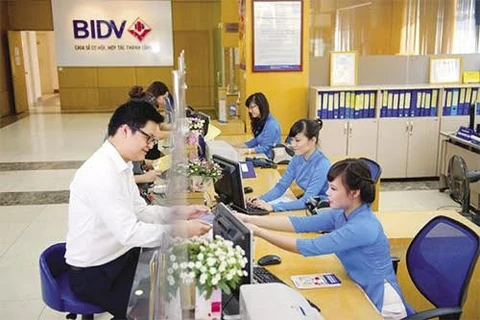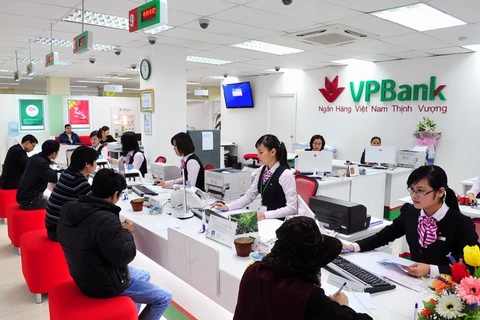 Commercial banks are focusing on the retail segment by adjusting their service fees to individual customers since the beginning of the year. - Illustrative image (Source: Vietcombank)
Commercial banks are focusing on the retail segment by adjusting their service fees to individual customers since the beginning of the year. - Illustrative image (Source: Vietcombank)HCM City (VNA) - Commercial banks have adjusted their service fees to individual customers since the beginning of the year in order to focus on the retail segment.
For money transfer services in the same banking system, some commercial banks, such as VIB, VietinBank and Techcombank, do not charge for individual customers when using electronic services.
These banks charge 8,800 VND for the maintenance of their accounts.
In addition, the fee for money transfer services among different banks is 9,900 VND or higher per transaction, or as a percentage of the transaction amount ranging from 0.1 to 0.3 percent.
The Joint Stock Commercial Bank for Foreign Trade of Vietnam (Vietcombank) has increased its service fees since the beginning of this month.
The monthly fee of its SMS banking service increased from 8,800 VND to 11,000 VND, including VAT (value-added tax).
Vietcombank has begun charging 2,200 VND per transaction from Vietcombank account holders via its mobile banking app from March 1.
For internet banking service, Vietcombank’s customers will have to pay 2,200 VND for each transaction worth less than 50 million VND (2,196 USD) and 5,500 VND for each transaction worth more than 50 million VND.
The fee for an inter-bank transaction of below 10 million VND is 7,700 VND, and when the amount is more than 10 million VND, it charges 0.02 percent of the total amount per transaction.
Financial expert Bui Quang Tin said that the competition among bank service fees was quite fierce as some banks offered free of charge inter-bank money transfer services in order to attract more customers.
"The recent increase in banking service fees at several commercial banks is understandable as the banks must invest more money to ensure security systems meet stricter requirements from customers," he said.
According to the State Bank of Vietnam, commercial banks issued 132 million cards as of the end of last year.
Last year, the number of transactions, including withdrawals and transfers, via ATMs was over 206 million transactions valued at 563 trillion VND; while there were 43.5 million POS and EDC transactions with a total value of 95 trillion VND.
As for domestic transactions for non-cash payments, bank cards ranked second in terms of the number of transactions.
Individual deposit account balances increased by 42.6 trillion VND to 325 trillion VND in the fourth quarter of last year.
With a population of more than 93 million and rising consumption, Vietnam is considered a destination in the retail banking segment.-VNA
VNA





















